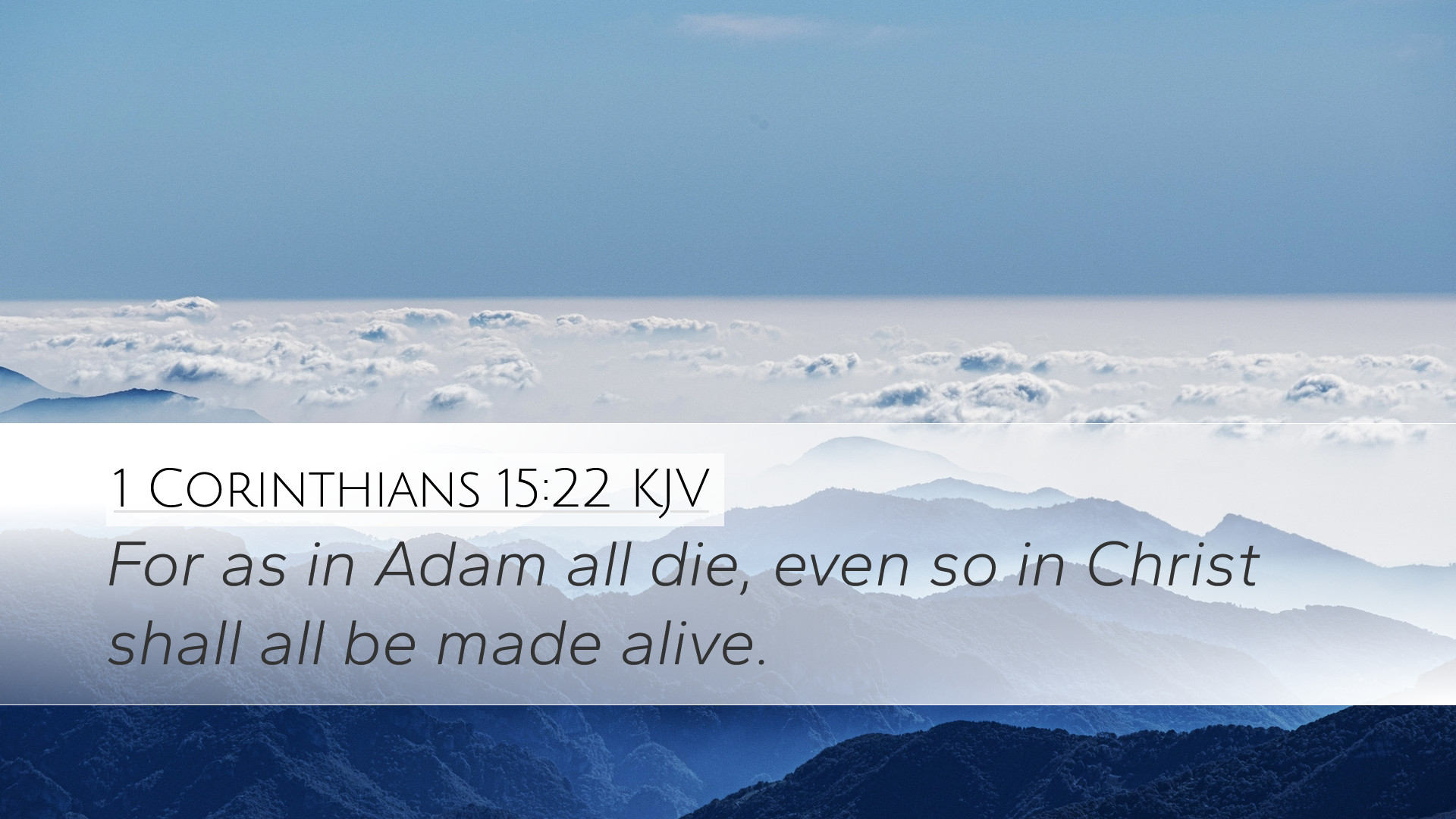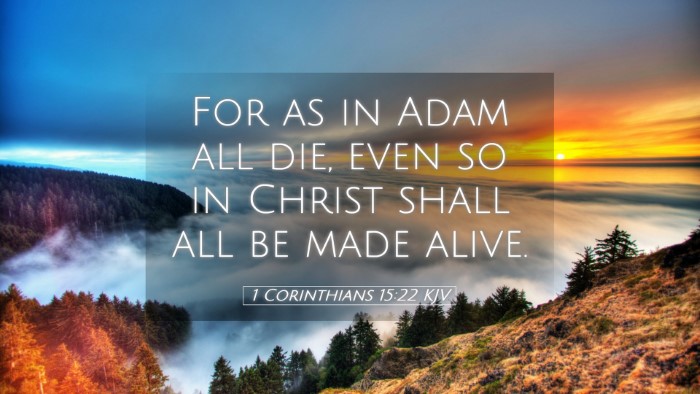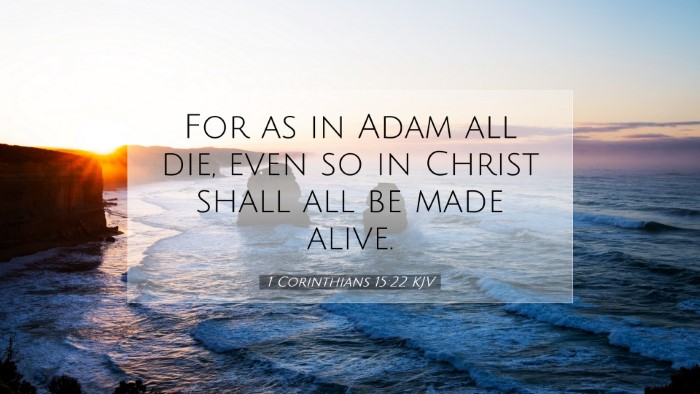Commentary on 1 Corinthians 15:22
Verse Text: "For as in Adam all die, even so in Christ shall all be made alive."
Contextual Overview
This verse resides within a larger discourse by the Apostle Paul addressing the resurrection of the dead. Paul seeks to demonstrate the significance of Christ’s resurrection as a foundational element of Christian faith. The contrast between Adam and Christ is central to understanding the implications of sin and salvation.
Paul's Argument
Paul elucidates that death entered the world through Adam's transgression (Genesis 3). Consequently, all humanity, being in Adam, shares in the consequence of death. In this pericope, Paul further emphasizes how through Christ’s redemptive work, believers can experience resurrection and life. The dichotomy between death and life is crucial as it outlines the universal impact of Adam's sin against the universal offering of life through Christ.
Insights from Matthew Henry
Matthew Henry posits that this verse outlines the “two great heads” of humanity: Adam and Christ. He emphasizes the first Adam brought sin into the world, while Christ, as the "last Adam," provides redemption. In comparing these two, Henry notes that just as death is certain and universal through Adam, life is equally assured for those who are in Christ. He remarks:
"The ruin of mankind by the first Adam serves as a stepping stone to the restoration through Christ, the second Adam."
This underscores the profound theological truth that while sin has consequences, salvation through Christ counters the despair brought by death.
Insights from Albert Barnes
Albert Barnes highlights the theological implications of this verse regarding universality. He points out that the phrase "all die" indicates that no one is exempt from the consequences of sin found in Adam. Conversely, similar universality attaches to the phrase "all shall be made alive." Barnes emphasizes that this serves to comfort believers with the assurance of eternal life:
"All who are united to Christ by faith shall share in the benefits of His resurrection."
He asserts that just as death is a shared experience among all men, so too does the possibility of life through Christ apply broadly, reflecting the inclusive nature of the Gospel message.
Insights from Adam Clarke
Adam Clarke delves into the original Greek terminology used in this verse. He comments that "in Adam" conveys a profound spiritual reality; being "in Adam" signifies a state of sin and death, whereas being "in Christ" signifies entering into salvation and life. Clarke posits that the phrase "shall be made alive" suggests a future promise fulfilled in both the spiritual resurrection believers experience now and the physical resurrection to come:
"The resurrection from the dead is both a present reality for the believer and a future hope; it encapsulates the transformative power of regeneration."
Clarke’s exploration of the timing and nature of this resurrection encourages a hopeful outlook for believers, emphasizing the temporal nature of earthly suffering compared to the everlasting joy promised in Christ.
Theological Reflections
This verse serves as a microcosm of Pauline theology. It starkly contrasts the results of Adam's disobedience with the redemptive obedience of Christ. For theologians and students, the implications of this relationship invite reflection on the doctrines of original sin, total depravity, and soteriology.
- Original Sin: Adam's transgression brought forth death, emphasizing the need for salvation.
- Total Depravity: Humanity’s condition is one of spiritual death without Christ's intervention.
- Soteriology: The redemptive work of Christ reverses the effects of sin, providing hope for resurrection.
Practical Applications for Ministry
For pastors and ministry leaders, 1 Corinthians 15:22 should inspire a robust understanding of the gospel’s message:
- Certainty of Hope: Emphasize the assurance of life in Christ while addressing the reality of death.
- Universal Call: Foster an environment of inclusivity in sharing the Gospel; all are invited to partake in this promise of resurrection.
- Discipleship: Teach believers the importance of identity in Christ over the identity tied to Adam's sin.
This verse is a powerful reminder to engage with the mystery of faith and the transformative power of Christ’s resurrection in sermons, studies, and counseling.
Conclusion
1 Corinthians 15:22 stands as a testament to the hope found in the Christian faith. By framing the conversation around the first Adam and the last Adam, Paul provides a clear message of both judgment and grace. The insights from respected commentators unpack the dense theological implications of this verse. For scholars and theologians, it fosters rich dialogue on foundational doctrines, while for pastors, it cultivates a deep reservoir of hope to share with their congregations. Therefore, believers can find encouragement in knowing that while death is a certainty in Adam, life is a promise and reality through Christ.


